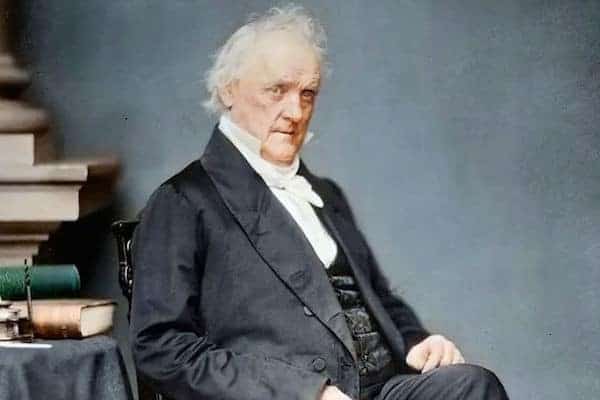Whenever historians discuss James Buchanan, they tend to classify his term as President of the United States as a failure. He was the 15th President and served from 1857 to 1861. When running for president, he promised not to seek a second term and was true to his word because he did not run for office in 1861.
His efforts to maintain peace between North and South were all for naught as the nation descended into Civil War soon after his term in office ended. There is one interesting fact about Buchanan that is not common knowledge; on at least two occasions he purchased slaves for the sole purpose of freeing them.

The Peculiar Institution & Presidents
It is not known exactly how many times Buchanan freed slaves or the number he set free, but we do know of one incident in 1832. In that year, his sister, Harriet, was set to marry a Virginian named Robert Henry. When Buchanan found out that the Henry family owned slaves, he purchased two female slaves with his own money to ensure his sister had no association with the peculiar institution. He brought them to Pennsylvania and freed them as soon as possible.
Details of his other emancipation efforts are less clear although there is a suggestion that he bought and freed slaves while in the White House. His son, James Henry Buchanan, said that his father purchased slaves in Washington D.C. during his term of office and always brought them to Pennsylvania where they were freed. However, Philip Shriver Klein, Buchanan’s biographer, said the future president did not fully free the slaves he purchased in 1832. Instead, they became his indentured servants.
As there is no definitive record of Buchanan owning slaves outside of the brief period in 1832, he is not included in the list of 12 presidents who owned slaves at some point in their life. Of them, 8 owned slaves while in office. George Washington owned the most slaves of any president with over 300. In his will, the First President wrote that the slaves would be freed upon the death of his wife, Martha. She ultimately freed all of them within a year of his death.
Thomas Jefferson owned over 200 slaves while James Madison owned around 100. Although Jefferson was opposed to slavery on moral grounds, his vast personal debt meant that only a handful of his slaves were freed upon his death. There is some dispute over the number of slaves owned by Andrew Jackson although the figure could be close to 200. He was criticized for being a slave trader during his run for office and faced a variety of controversies relating to slavery while in office from 1829 to 1837.
Buchanan was like many of the presidents that owned slaves insofar as he disagreed with slavery in principle but did nothing to try and abolish it as we’ll see when we look at his career.

